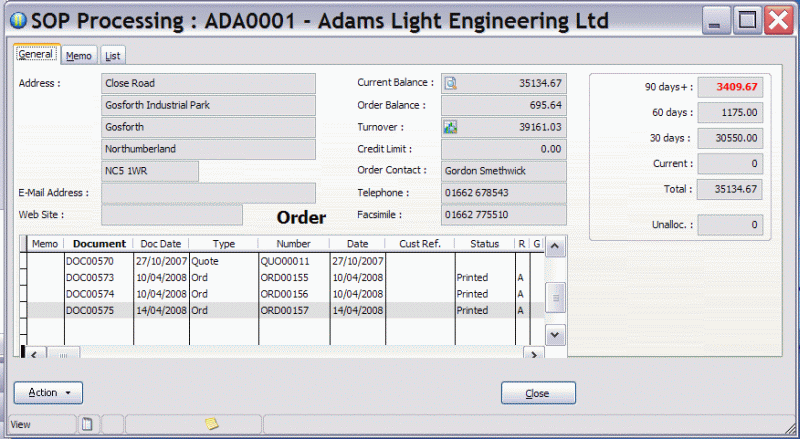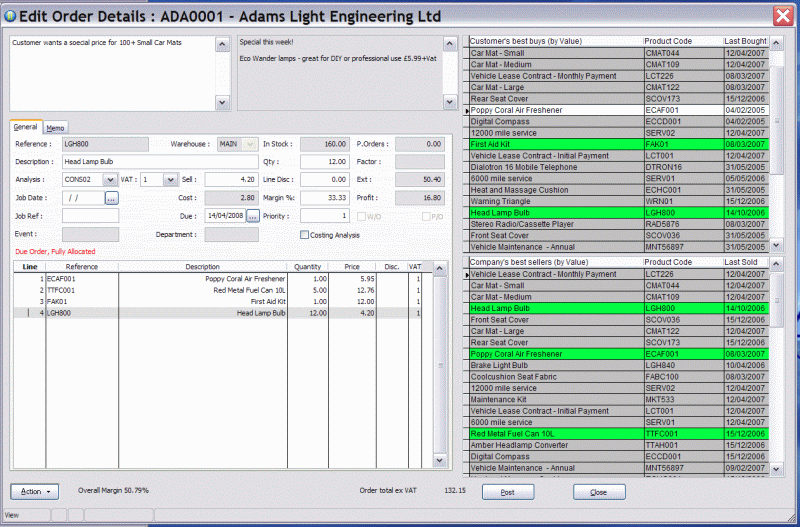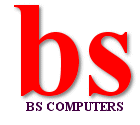BS Sales Desk
This enhances Opera's SOP Processing and Order Entry screens to make them more useful when taking orders on the phone.
In Sales Processing, the customer's aged debt is shown, enabling delinquent customers to be identified before any order is taken

When entering details the screen is enhanced as follows

At lower left is the normal SOP details form. It is extended so more lines are visible. This form works in exactly the same way as normal.
At top left is the customer note pad, normally only visible and updated in Sales or SOP Processing. It can be updated by the telesales operators (e.g. 'cheque is definitely in the post'
At centre top is 'heads up' or 'notice board' where you can put notices to the tele sales operators, such as current special offers.
At top right is a list of everything this customer has bought. This list can be arranged in order of sales value, sales quantity or profit. Double clicking on a line will enter the product code in the SOP screen. This enables you to process repeat orders very easily.
At bottom right is a list of sales to all customers with the same facilities as the panel above. Lines which have already been added to the order are highlighted. This allows the operator to suggest those products whih are selling very well or are the most profitable. See below for the Pareto Principle.
In SOP Utilies - Pareto Options there is a facility for setting the ordering (Value, Quantity or Profit), the period of sales history to be shown and updating the company noticeboard. You can change the period to reflect seasonality so in the Xmas sales season you show sales from this season last year etc.
The sales history is deprived from Opera's Sales History so it is only limited by the limits you set for Period End Clear Downs (up to 99 periods)
Pareto?
The Pareto principle (also known as the 80-20 rule, the law of the vital few and the principle of factor sparsity) states that, for many events, 80% of the effects comes from 20% of the causes. Business management thinker Joseph M. Juran suggested the principle and named it after Italian economist Vilfredo Pareto, who observed that 80% of income in Italy went to 20% of the population. It is a common rule of thumb in business; e.g., "80% of your sales comes from 20% of your clients."
